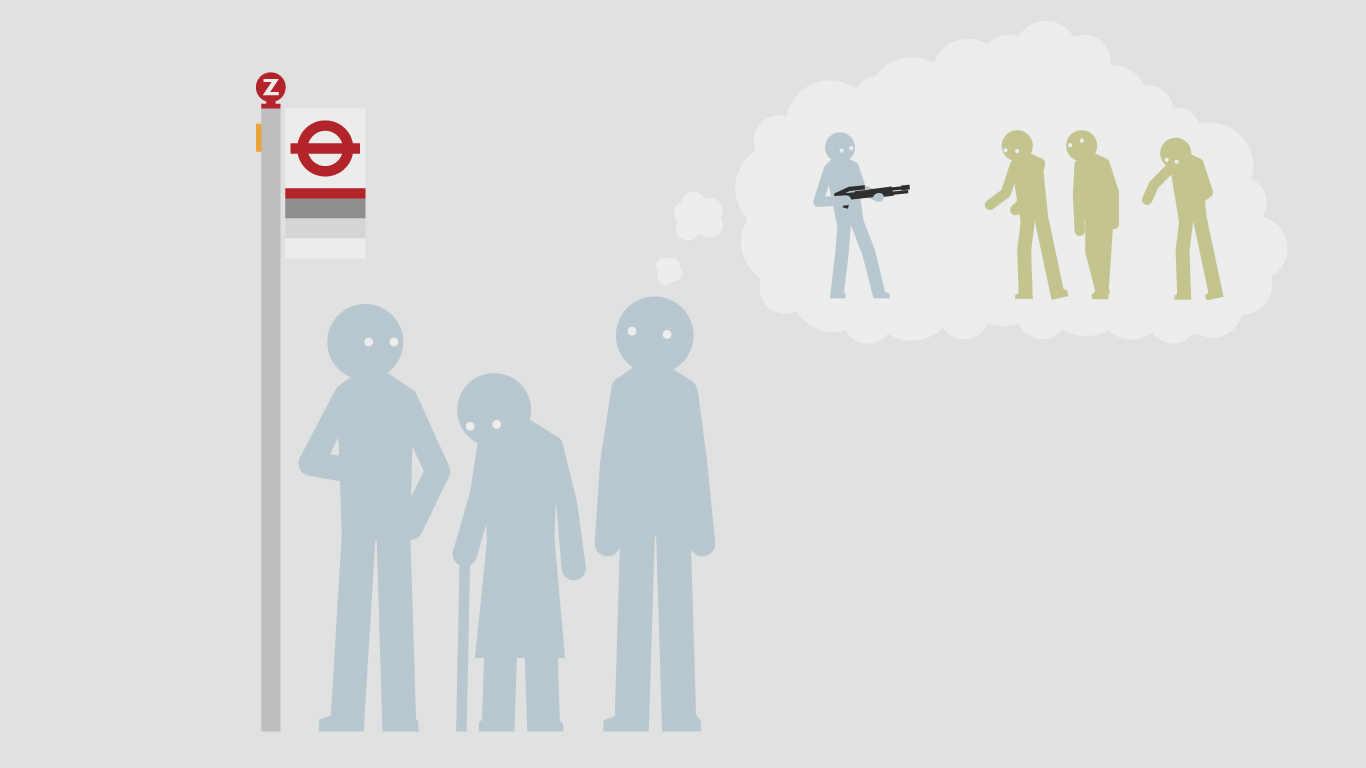Apocalust

Sam Hill
14th August 2011
During the start of Riot Week 2011, when many of us were darting wide-eyed between Twitter and rolling news coverage, there was a undeniable feeling of uncertainty. Obviously order was tenuously regained within a matter of days, but because it was difficult to rationalise a reason for the riots starting in the first place, it was even harder to understand when they would stop. Looting and arson seemed to be breaking out in locations arbitrarily. Why exactly were people raiding high streets in Birmingham, Liverpool or Bristol because of the activity going on in Tottenham?
A few people on Facebook and Twitter were quick to make wry allusions toward classic apocalyptic tropes. A comment like “It starts with isolated events…” might earn itself a dozen or so likes and replies within minutes. The implication was, invariably, that these riots were the media misinterpreting the dawn of a zombie/ ‘crazie’ uprising. It was an excuse for some people – the ones with Walking Dead collections and healthy Gamerscores – to fall, misty eyed, into a state of mental preparedness.
It’s hard to calculate precisely what proportion of people have had, at one time, an “undead survival strategy” (how can the property be secured; what immediately available object could be re-appropriated as a weapon; food and water supplies; who needs ‘saving’; routes out of the city etc. etc.) but it must be enough to have warranted the success of Max Brook’s The Zombie Survival Guide, Pegg and Wright’s Shaun of the Dead and Valve’s Left 4 Dead series.
It’s tempting to predict the future of digital culture has only two certainties: zombies and kittens. It’s difficult to imagine what sort of backlash would be significant enough to counter the cultural inertia that both memes possess. Though the undead seem to have been a perennial example since even before Romero, there are other du jour harbingers of the apocalypse too: aliens, viruses, the weather, the environment, meteorites, magnetism, plants, robots, nuclear war etc.
But where is the appeal? How can the apocalyptic fiction industry be so successful? Why indulge in a mind game in which most of your friends, family and colleagues die a painful, traumatic death? Gross schadenfreude? A fetish for unrestrained commercial consumption? The idea of rebuilding society according to one’s own ideals? Subconscious manifestation of genetic competitiveness?
Perhaps it’s nothing more than a lust for adventure and exploration coupled with a resentment for restrictive aspects of western twentieth century living. We have an enormous legacy of exploration, but no frontiers left to investigate*. To quote The Truman Show: “you’re too late, there’s really nothing left to explore”. Global disaster wipes that slate clean – the familiar becomes unknown; the rules are broken; the old order is gone.
How can apocalust be sated? Well, games, films, literature and television drama seem to be doing a good job already – the demand is satisfactorily met. It might be argued that they’re fuelling the desire too, but in general there are more than enough fantasy frontiers out there to explore in fiction, doomsday related or not. But if the illusion no longer works, then there’s always the potential to go travelling. After all, just because everywhere on earth is known by it’s people, it’s not to say the individuals cannot discover new things for themselves.
* – of course, there are tonnes of frontiers left to explore, scientifically: medicine, astronomy, marine ecology etc. But not a lot is open for the every man, and not in a way so literal as, say, the colonisation of the Americas.

